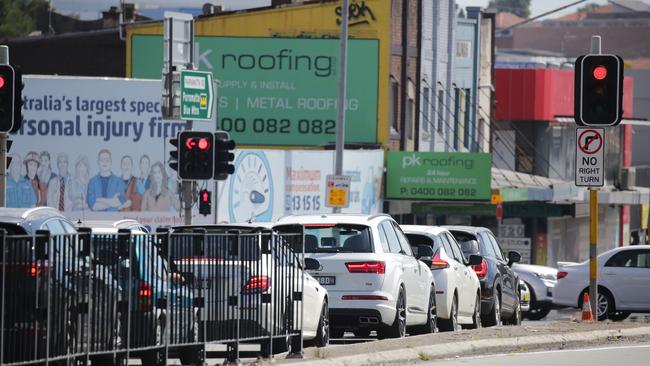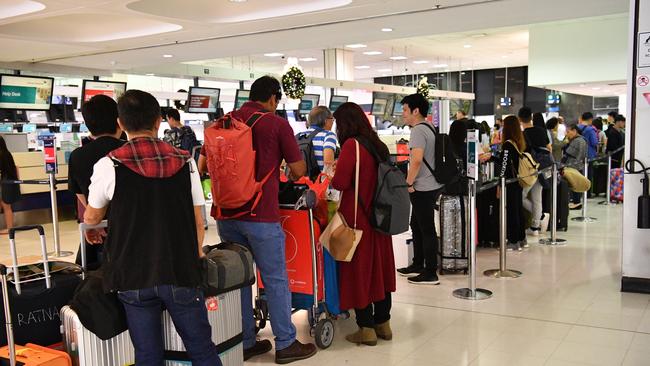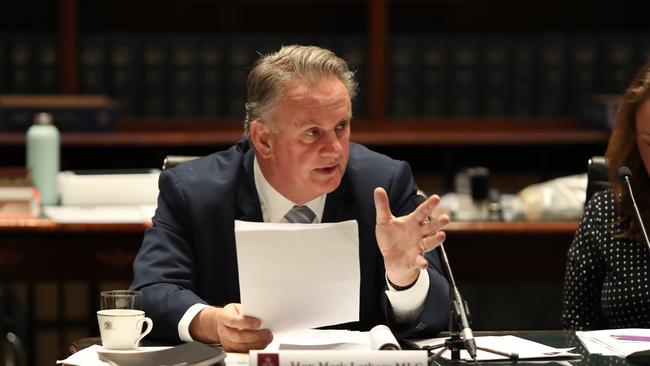Return of high immigration means softer wages growth: experts
The government says Australia could return to high immigration intakes in just a few years — but doesn’t mention the cost to workers including wage growth.
News
Don't miss out on the headlines from News. Followed categories will be added to My News.
Traffic jams, overcrowded classrooms and lower wages are on the cards if the government’s assumptions about a return to pre-pandemic immigration levels come true, economists and experts warn.
In Tuesday night’s Budget, Treasurer Josh Frydenberg flagged Australia could go back to taking in 235,000 migrants per year by 2024-25.
The Budget also called on foreign students to be allowed to work more than 40 hours per week in some sectors, adding more competition to the local jobs market.

“With international borders closed, there is a greater chance wages growth may accelerate,” said Gareth Aird, Head of Australian Economics at Commonwealth Bank’s Economics and Markets Research division.
“When you have skills shortages pop up in the economy, that means that workers at the margins have a better chance of negotiating pay rises, supporting higher wages.”
Mr Aird said the same phenomenon could be seen with critical infrastructure like roads, hospitals, and schools.
“We’ve been spending a lot on infrastructure for a number of years now, but a lot of that was the tail wagging the dog and playing catch up,” Mr Aird said.
“Now because you have low immigration at a time of high infrastructure, what we see is what matters to the individual, the amount of money being spent on infrastructure per capita.”

State Upper House member and leader of One Nation in NSW Mark Latham pointed to a recent Reserve Bank statement suggesting that a sustained economic recovery would lead to higher wages, but only if local workers did not have to compete with imports.
“With the RBA pointing to early signs of wages growth because we are no longer flooding the labour market with overseas arrivals, why would any sensible policy maker rush back to Big Australia immigration numbers?” Mr Latham said.
“The longer immigration stays low, the more Australians will have a chance to find jobs, leading to a tighter labour market and wage increases after a decade of wage stagnation.”

The point was echoed by Bob Birrell, president of The Australian Population Research Institute.
“The need for high immigration policy has been brought on by the government’s own policy, which has been to pump up the economy with huge monetary and fiscal stimulus, and then bringing in more workers to take up the slack, said Mr Birrell.
“It’s like immigration is running the whole show.
“The government is giving the game away by allowing students to work virtually unlimited hours. It is based on bringing in short-term workers under the guise of students.”
Mr Aird warned that policy makers should be careful about assuming the country should or would return to its previous high immigration settings.
“If we return to what we had pre-COVID than the conditions will resemble what we had pre-COVID, which means softer wages growth and the need for even more investment in schools and roads and health to keep up with the population.”
“It shouldn’t be looked at as a binary issue, but this should be an opportunity for policy makers to look at population growth and find out what the right level of net overseas migration really is,” said Mr Aird.
Earlier this year in a dissenting report on skilled migration, the ALP recommended opposing increasing the number of occupations on skills shortage lists and bringing in migrants ahead of Australians stranded overseas.
More Coverage
Originally published as Return of high immigration means softer wages growth: experts





